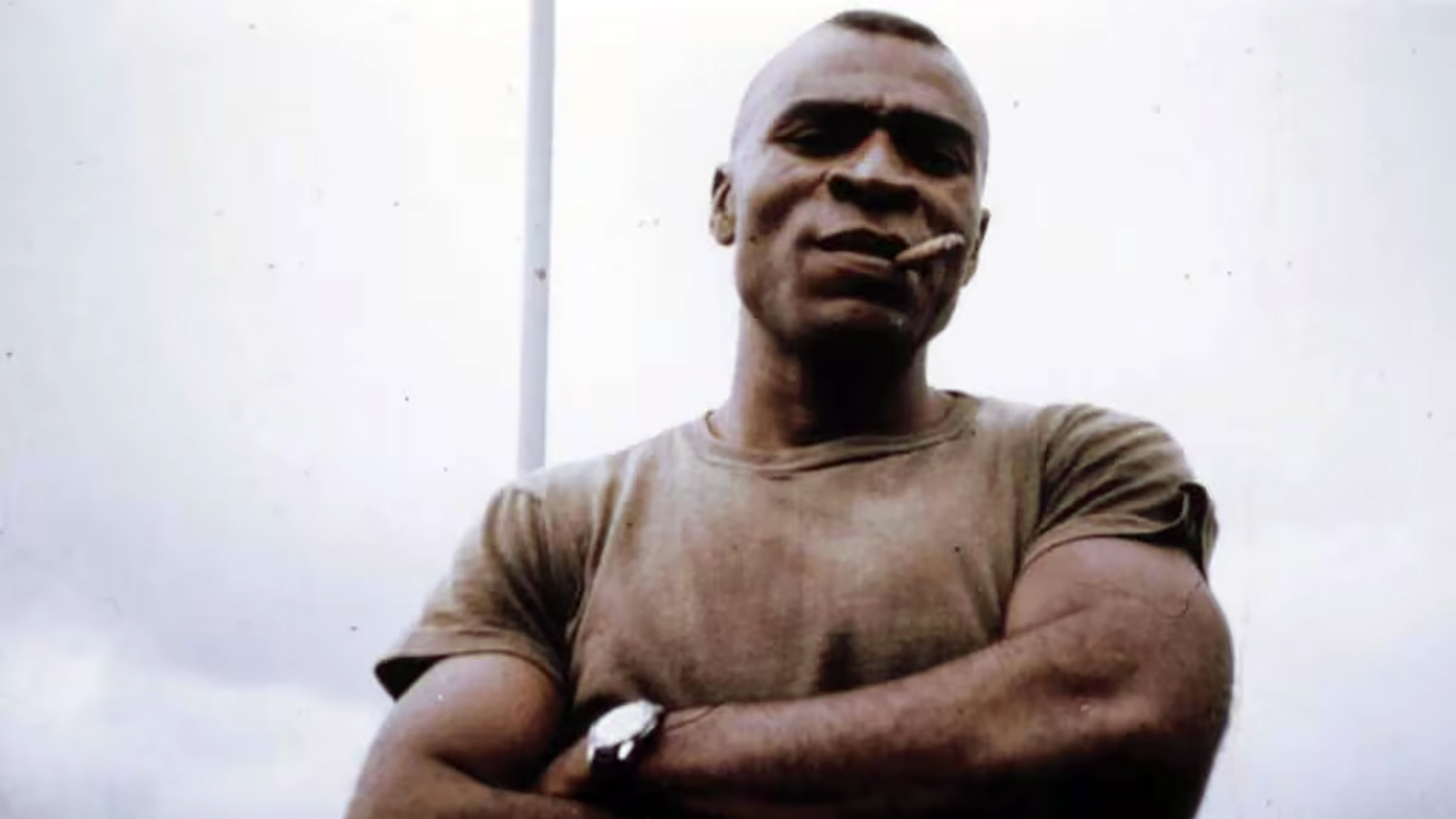
In April 1967, Marine 2nd Lt. James Capers Jr. ignored his numerous bullet and shrapnel wounds to lead his nine-man team from 3rd Force Reconnaissance Company against an enemy ambush in South Vietnam.
The ambush had erupted with hidden explosives that threw Capers against a tree. Shrapnel from the blast punctured his body in more than a dozen places, including wounds to his abdomen and a broken leg, Capers told Coffee or Die Magazine in 2021.
Still, Capers ordered a mortar strike on the team’s position to keep the enemy at bay. Despite losing a significant amount of blood and being administered morphine, he led his team to a helicopter landing zone.
When a helicopter landed, Capers refused to get on board unless the crew took the body of the team’s military working dog. After the helicopter was initially unable to take off, Capers twice tried to get out of the aircraft to lighten the load. Both times, a crew chief had to pull him back inside.
The helicopter eventually lifted off and ferried Capers and his team to a hospital. Capers later retired from the Marine Corps as a major, and in 2010, he was awarded the Silver Star for his “bold leadership, undaunted courage, and complete dedication to duty,” his award citation reads.

Now, a lawmaker is trying for a third time to pass legislation that would authorize the president to award Capers the Medal of Honor.
Rep. Ralph Norman (R-S.C.) introduced a bill on May 13 that would waive a requirement that service members receive the Medal of Honor within five years of their actions that merit the award. In 2020, President Donald Trump signed a similar bill that allowed Army Sgt. 1st Class Alwyn Cashe to receive the Medal of Honor for his bravery 15 years earlier in Iraq.
“Mr. James Capers Jr. isn’t just a hero, he’s a living legend in every sense of the word,” Norman said in a statement earlier this month. “His courage in Vietnam, his humility throughout life, and his unwavering devotion to this country are second to none. It’s an honor to reintroduce this bill, because a man like Maj. Capers deserves nothing less than the Medal of Honor.”
Although Capers had been previously nominated for the nation’s highest military award for valor, “administrative shortcomings and delays” ultimately prevented him from receiving it, a May 14 news release from Norman’s office says.
During a March interview with Fox News, Capers was asked why he had not already been awarded the Medal of Honor for his heroism.
“That was 1967, and the world was a lot different in those days,” Capers replied. “The Marine Corps had been integrated in 1948, as a matter of fact, so we still had officers who commanded us that didn’t quite understand all the things that we needed as African Americans. We could fight. We could lead. We could get it all done. But the leaders didn’t see us as equals.”
Over the past four years, Norman has twice introduced legislation that would have authorized the president to award Capers the Medal of Honor, but Congress did not pass the bills.
Capers repeatedly demonstrated his bravery and his commitment to the Marines who served under him. He always insisted on being the last person to board helicopters when it was time to leave the battlefield.
In a different mission in January 1967, Capers ran from tree to tree to fire at the enemy, creating the impression that there were more troops on the ground, as the rest of his team was hoisted into a CH-46 helicopter.
On another patrol, Capers killed three North Vietnamese soldiers when his M16 rifle jammed. When another two enemy soldiers launched a counterattack, he killed them both with his pistol.
In February, a group of 47 lawmakers sent a letter to Trump requesting that he consider taking action needed for Capers to receive the Medal of Honor, describing Capers as “one of America’s greatest patriots.”
They noted that Capers was the first Black Marine to lead a reconnaissance company and to receive a battlefield commission.
“We firmly believe that Maj. James Capers Jr., has met the stringent criteria for the Medal of Honor,” the letter says. “His selfless actions, leadership, courage, and initiative uphold the highest traditions of the United States Armed Forces. The exceptional valor displayed by Maj. Capers during his missions in the Republic of Vietnam from March 31 to April 3, 1967, serves as a shining example for all servicemen and women, and it is deserving of the highest recognition.”
Now 87 years old, Capers lives alone. His son, Gary, who was born blind, died in 2003, and his wife Dottie died six years later.
Capers told Task & Purpose that he originally served as a staff sergeant, but all the officers in his unit were killed, so he was commissioned to second lieutenant. After he was wounded, he spent a year recuperating at Bethesda Naval Hospital in Maryland learning how to walk again.
He said that he owes his survival to his family and all the men and women who served with him in war — and he is adamant that he does not consider himself to be a hero.
“I was just a Marine,” Capers said. “I had a job to do and I did it as best I could. Obviously, we’d all like to be heroes, but those men in my unit, they were heroes. There’s only two of us left alive today.”

